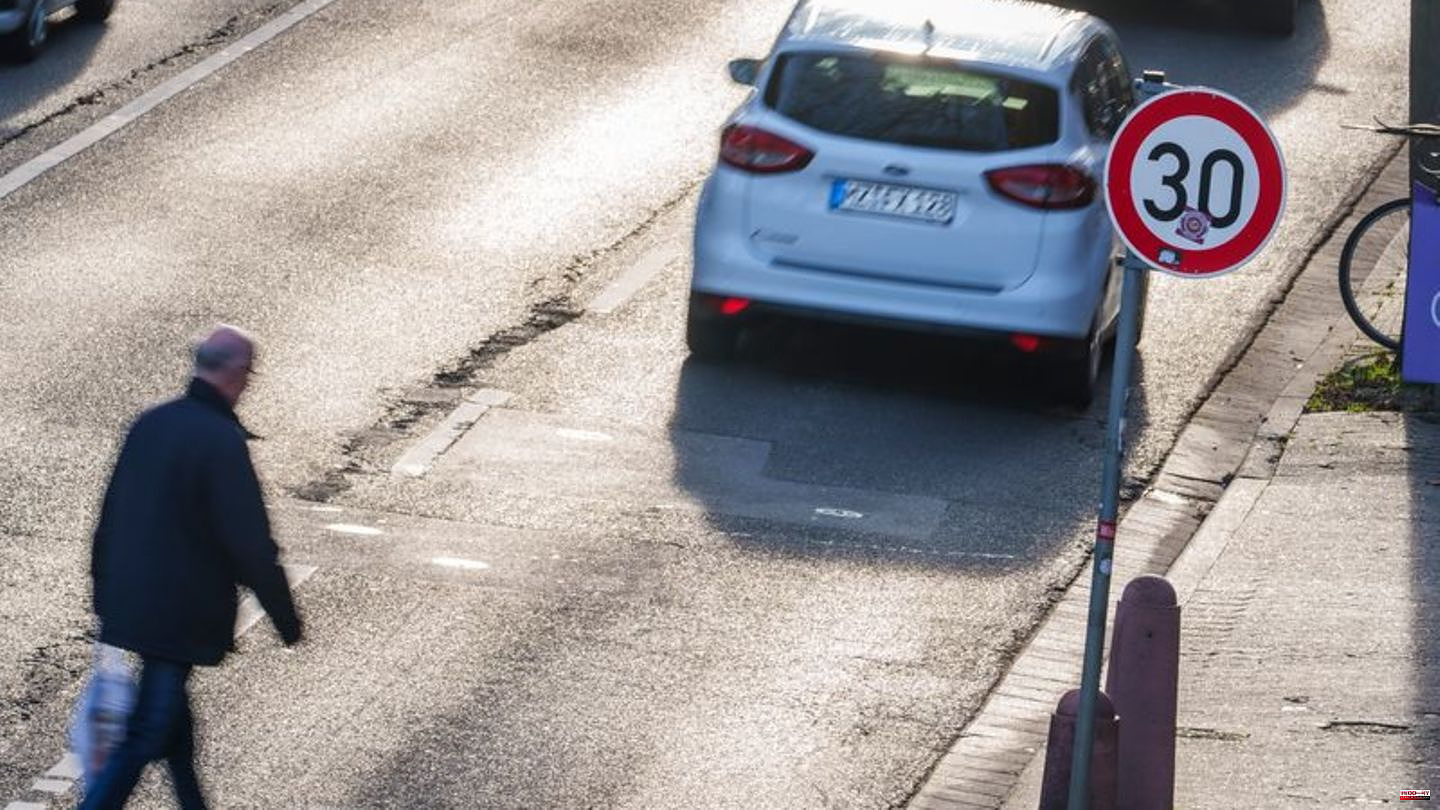From the point of view of environmentalists, cars, trucks and motorcycles are traveling far too fast in the cities. The German Environmental Aid (DUH) calls for a change in the road traffic regulations, since the 30 km/h speed limit is far too rare. "Unfortunately, that's not going well," said DUH Federal Managing Director Jürgen Resch of the German Press Agency in Berlin. "We have the very big problem that there are very few options for introducing a 30 km/h speed limit because of the road traffic regulations."
This speed limit is mainly in side streets, for main roads strict criteria have to be met, criticized the environmentalist. "But the most and most dangerous traffic does not drive through the side street."
From the point of view of environmental aid, Tempo 30 should apply across the board: "We demand Tempo 30 mandatory for all urban areas," said Resch. Any further road is good. "But compromises are not enough." Regulating this nationwide would also mean better orientation for drivers, emphasized the environmentalist. "I drive into a city and I know: Tempo 30."
The legal situation imposes narrow limits on cities
Numerous cities also want more 30 km/h, but due to the legal situation they are subject to strict limits. The city of Hanover informed the German Press Agency that 30 km/h zones had been set up extensively in the city many years ago wherever this was permitted. "However, the city of Hanover would like to sign 30 km/h on selected main roads, but is not legally allowed to do so."
The city is therefore active as a founding member of the "Liveable Cities" alliance and is calling on the federal government to change the legal framework and give the municipalities more leeway on these issues. "We are convinced that it is possible to assess very precisely on site whether it is profitable to reduce the speed," the city said. According to the information, around 360 cities, municipalities and districts are now involved in the initiative for more freedom of choice when setting speed limits.
If all cities were to introduce a 30 km/h speed limit, it would have several positive effects, as the DUH federal manager explained. He listed: less pollutants in the air, less noise pollution, more traffic safety, and "we would also get out of the forest of signs".
The Federal Ministry of Transport (BMDV) is "open to different solutions" with a view to corresponding regulations, said a spokeswoman. "But the BMDV is not convinced of the nationwide 30 km/h speed limit or speed limits in thoroughfares."
Amsterdam introduces a 30 km/h speed limit across the board
According to the coalition agreement, the road traffic law and the road traffic regulations should be adapted in such a way that the goals of climate and environmental protection, health and urban development would also be taken into account, according to the ministry. "The aim is to give the states and local authorities scope for decision-making." The Ministry is currently examining the results of a country working group on the subject of road traffic regulations.
Other countries show what is possible. The Dutch capital Amsterdam, for example, recently announced that 30 km/h will soon apply on most streets. The measure will affect 80 percent of the city area and will start in December 2023.
Resch from Deutsche Umwelthilfe said Mainz was a positive example in Germany. With a view to Tempo 30 in German cities, he otherwise speaks of a "patchwork".
The residential streets and side streets in the Mainz city area are all in Tempo 30 zones or in traffic-calmed areas, as reported by the head of the traffic department, Janina Steinkrüger. Tempo 30 applies to some of the inner-city main traffic axes for reasons of air pollution control. In addition, traffic-calmed business areas with a speed limit of 20 are also reported on main traffic routes.
From Stuttgart it is said that all legal possibilities for the implementation of speed limits are "fully exhausted". "The city of Stuttgart advocates more municipal room for maneuver on the subject of speed reductions and will develop a corresponding city speed concept in this context," said a spokesman.
The mobility department in Munich also finds Tempo 30 "quite interesting" as the standard inner-city speed. "For example, a large number of signs on sidewalks could be omitted, thereby improving accessibility," said a spokeswoman. However, Tempo 30 as the standard speed does not automatically mean Tempo 30 across the board, according to the Bavarian state capital. Accordingly, criteria for a so-called priority road network would have to be examined on which a higher permissible maximum speed would be possible. According to the spokeswoman, this would then be a reversal of the current legal system in the road traffic regulations.












